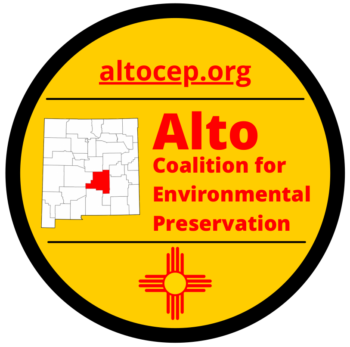Geologist’s Comments on the Impact of the Concrete Batch Plant on Aquifers
Cynthia E. Black
Ms. Corral: I’m opposed to the construction of the concrete batch plant proposed by the Roper Construction Company. My primary reason for opposition: Limited & connected aquifers where high use impacts neighbors Aquifer contamination potential is high There are other issues to consider for opposition to this concrete plant involving air quality, noise, light contamination, and destruction of quality of life for individuals living adjacent to the property, and, while important, can be perceived as ephemeral. In Lincoln County our groundwater is accessed by wells usually 200-500 ft deep. The aquifers are fractured igneous rocks (Oligocene) or sedimentary rocks (Cretaceous or Permian). The best aquifers in our area that yield the highest rates are accessed by drilling into or adjacent to the late stage igneous porphyritic dykes that are preferentially fractured. These occur in the proposed Roper Construction plant area. Our aquifers recharge by rainwater or snowmelt seeping through the thin soil horizon to the fractured rock below. As you know, our aquifers are drawn down and in dry years wells may go dry. The proposed concrete batch plant will use an unprecedented 72,000-87,000 gallons of water per day. There will be drawdown on wells on adjacent properties, and the drawdown will be significant. Further, the trucks transporting the concrete must be cleaned and between them and the concrete-making process, there is significant water waste – there is no realistic way of preventing the waste from contaminating these same aquifers. This is because of the natural and rapid recharge process in our area. Because of the thin soil horizon and shallow aquifers, there is no natural “filtering” effect. We live in one of New Mexico’s most beautiful counties. We are a tourist destination. Many seniors retire here. Mr. Roper has selected a spot that will give him a high rate of return, but which creates significant ill effects on all of his neighbors as well as the natural environment and our most valuable natural resource – water. I hope you will consider the water problem – truly a critical resource for us all – when making your decision. Sincerely, Cynthia E. Black, Geologist/Geophysicist (45 yr career)
